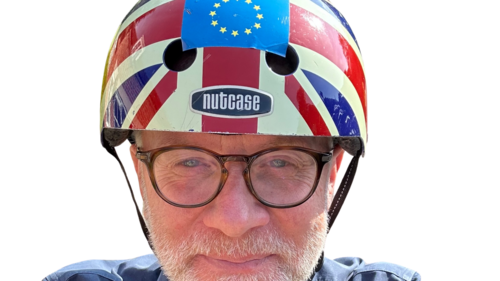The British Nation State and Europe

Pride in a nation is a powerful emotion.
Can we be proud of our nation not based on our history, but on how we provide for our people now? On the quality of our education, the quality of our healthcare, how well we look after our elderly and infirm, the quality of our air, of our sparkling rivers, our clean beaches, of the opportunity we give our youth, our amazing trains and road. Pride not in the flag, but in what the flag represents for the people that live here.
When I lived in the US, I was hugely proud to explain to disbelieving US colleagues that our NHS really is free – and this means cancer care, stroke care, cardiac care, emergency care. These are life events that in the US can lead the uninsured to bankruptcy and terrible outcomes.
As it was 2016, I also had to explain Brexit and the EU. 27 nations that had been so committed to trade, peace and the welfare of their people that they had agreed to a set of common rules and standards so that they could freely trade and exchange labour, goods and services. The use of common rules has underpinned trade, and whilst we may not agree with all of them, and although imperfect, they are designed to help to stop the powerful exploiting the weak. Trade and rules, to replace conflict and war, and it worked.
8 years after the referendum, Brexit remains an emotional issue and perhaps this is why it is a topic avoided by both Labour and the Conservatives. I think we should try and strip away our feelings about it and deal with it in fact, with objectivity. Has it helped with any of the things that would make our lives better? With staffing our NHS, with our education? Has it helped our economy? Has it even helped control immigration? It is impossible to find a single thing that has improved because of Brexit? Indeed, has Brexit helped Putin, more than it helped Britain.
Across businesses large and small, in all sectors, across healthcare, education, policing, immigration, science and research we find more complexity, more costs, more friction. But this government will keep telling you about the "opportunities". And Labour are too scared to be honest, too concerned to upset the balance they have struck with the pro-Brexit press and the “Red Wall” so they persist with the myth that it can be made to work. We need political leaders now to be honest about the damage Brexit has caused – and this will be the first step on the path to fixing the damage, and the probable slow path to rejoining.
Some people have said to me we can't keep on looking back [at Brexit]. I agree. As a country we have to look forwards. This for the UK is almost our "Stunde Null" - what Germany called the zero hour - from now on, only forwards, only better. We need to be only concerned with making the lives of our people better in every way that we can. We tried Brexit, and it failed. If our future prosperity and opportunities for our people would be better, then of course we should consider joining the EU and let's leave Brexit behind for good. We can be prouder of what Britain can achieve by committing to peace and trade in Europe, than staying out and being forced to be proud only of what we did in the past.